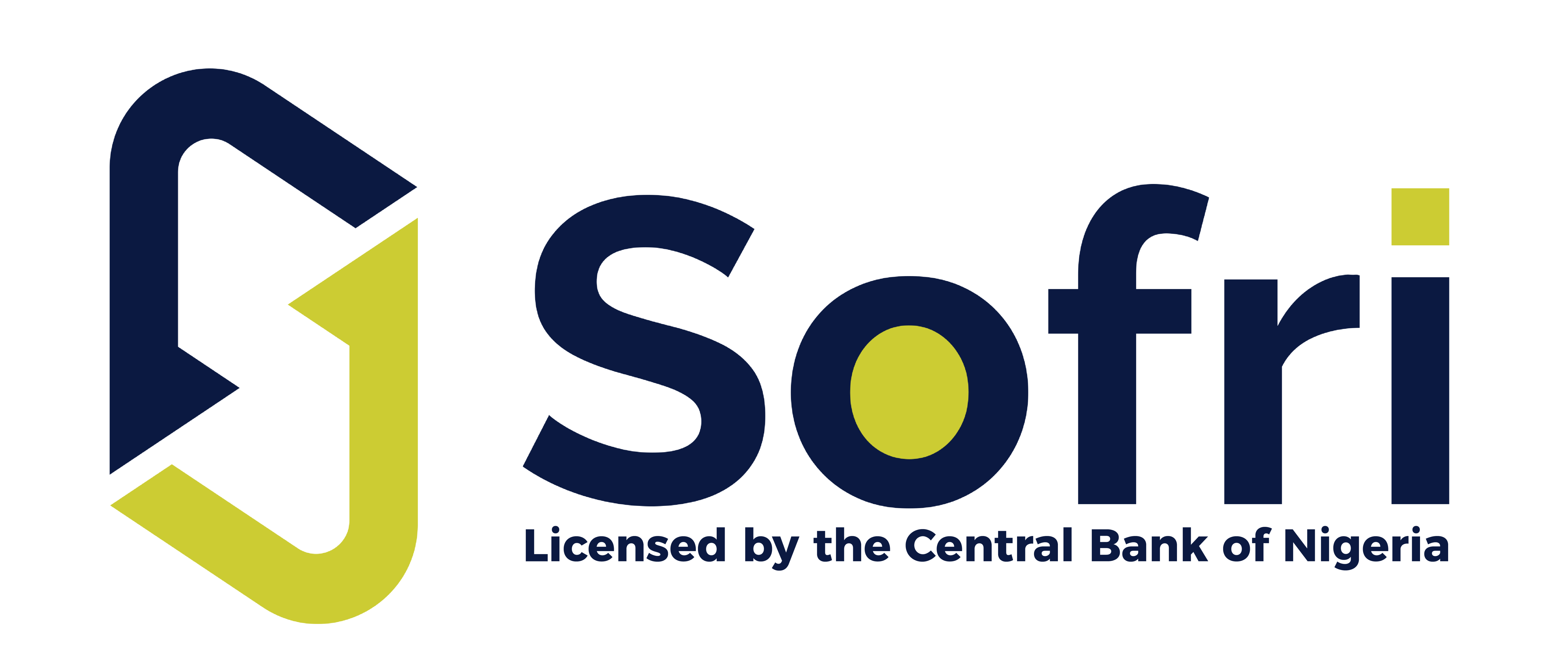Introduction To Salary Loan 101
Salary Loan 101: Salary loans can be a helpful financial solution for individuals who need quick access to cash. In Nigeria, salary loans are becoming more popular, as they provide a way for people to cover unexpected expenses or make necessary purchases without having to wait for their next paycheck. However, there are some hidden truths about salary loans that borrowers should be aware of before taking out a loan. From high-interest rates to limited borrowing capacity and impact on credit score, understanding these hidden truths can help borrowers make informed decisions about borrowing and managing their finances. In this context, we will explore some of the hidden truths about salary loans in Nigeria and what borrowers should keep in mind before applying for a loan.

What is Salary Loan?
A salary loan is a form of personal credit that is particularly intended for workers and is typically secured by the borrower’s salary or income. It is typically provided by employers or financial organizations and is intended to provide workers with short-term cash help. The debt is typically returned through automated payroll deductions.
What Are The Types Of Salary Loans?
Salary loans are classified into two different groups:
Secured salary loan: This form of loan is secured against the borrower’s salary or revenue and is usually provided by the borrower’s workplace or a financial organization.
Unsecured salary loan: This form of loan is not secured by the borrower’s salary or income and is usually provided by financial organizations such as banks or lending firms. The loan is typically dependent on the borrower’s credit background, income, and capacity to repay the debt.
Where Can I Get a Loan in Nigeria?
In Nigeria, you can get a loan from various sources including:
1. Banks:
Many Nigerian commercial banks provide loans for personal, company, or financial reasons. These loans may necessitate collateral and a high credit score, and lending terms and conditions, such as interest rates and repayment terms, differ between institutions.
2. Microfinance Banks:
Microfinance banks provide loans for particular reasons such as company expansion, education, or medical costs to small companies and people. These loans are frequently unsecured, can be acquired rapidly, and have open repayment conditions.
3. Online Lenders:
Online lenders in Nigeria provide loans that can be requested for and paid swiftly, with little or no collateral required. The loan application procedure is typically straightforward and can be done online. However, compared to other lending choices, interest rates, and fees may be higher.
4. P2P Lenders:
Peer-to-peer lending platforms link borrowers with individual or institutional investors who are ready to make loans. Borrowers can ask for loans immediately on the platform, and the loan conditions and interest rates are typically better than those provided by traditional lenders.
5. Consumer Finance Companies
Consumer finance businesses specialize in offering personal loans and other types of consumer financing. These loans can be unsecured or guaranteed, and the loan conditions, including interest rates and payback terms, differ based on the provider.
Why Do I Need a Salary Loan in Nigeria?
A salary loan in Nigeria can be useful in a variety of circumstances where you need fast access to funds. Some typical causes for needing a salary loan include:
1. Unexpected Expenses:
Unexpected expenses such as medical bills, car repairs, or home repairs can be expensive and may require access to funds quickly. A salary loan can provide the funds needed to cover these costs.
For example, a salary loan can be used to cover the cost of an unexpected medical expense, such as a hospital stay or surgery.
2. Short-term Financial Needs:
If you need funds to cover a short-term financial need, such as paying rent or bills, a salary loan may be a good option. Salary loans are often designed to provide quick access to funds and are typically repaid through automatic payroll deductions.
For example, if you need funds to pay rent or bills, a salary loan may be a good option. You can use the loan to cover these expenses and then repay the loan through automatic payroll deductions.
3. Business Expansion:
If you own a small business and need funds to expand, a salary loan can provide the capital you need. This type of loan can be used to purchase inventory, and equipment, or to hire additional staff, among other things.
For example, if you own a small retail store and need funds to purchase additional inventory, a salary loan can provide the capital you need. The loan can be used to purchase inventory and other supplies, and to hire additional staff if needed.
4. Education:
A salary loan can help cover the costs of tuition and other expenses related to education, such as textbooks and supplies. This type of loan can be especially helpful for those who want to further their education or acquire new skills.
For example, a salary loan can be used to cover the cost of tuition and other expenses related to education, such as textbooks, supplies, and transportation.
5. Debt Consolidation:
If you have multiple debts and would like to consolidate them into one loan, a salary loan can be a useful tool. By consolidating your debts into one loan, you can simplify your monthly payments and potentially reduce the total amount of interest you pay over time.
For example, if you have multiple credit card debts and loans, you can use a salary loan to consolidate these debts into one loan. By consolidating your debts, you can simplify your monthly payments and potentially reduce the total amount of interest you pay over time.
Before taking out a loan, it’s critical to grasp the terms and conditions and thoroughly consider your financial position. Make sure to evaluate various loan choices and select a loan that suits your particular requirements and circumstances.

Which Company Gives Instant Loans To Salary Earners in Nigeria?
1. Sofri:
Sofri offers instant loans to Nigerian wage earners, including commercial personnel and government officials. The business assesses creditworthiness using sophisticated technology and makes loans in minutes.
2. FairMoney:
FairMoney is a mobile-based financing company that provides fast and simple loans to Nigerian salary earners. Loans of up to NGN 100,000 are available, and money can be transferred to your bank account within minutes of acceptance.
3. Carbon:
Carbon is a mobile-based financing company that provides wage earners in Nigeria with fast and simple loans. Loans of up to NGN 100,000 are available, and money can be transferred to your bank account within minutes of acceptance.
4. Branch:
Branch is a digital financing company that offers instant loans to salaried Nigerians. The business assesses trustworthiness using machine learning algorithms and makes loans in minutes.
5. Paylater:
Paylater is an online lending application that offers fast and simple loans to Nigerian salary earners. You can apply for credit online, and if your application is accepted, funds will be transferred to your bank account within 24 hours.
It is essential to compare various loan choices and select a loan that suits your particular requirements and circumstances. Before taking out a loan, study the terms and conditions thoroughly, as well as the possible consequences of late payments.
Can an Individual Get a Salary Loan on Their Salary Account?
Yes, a person can obtain a salary credit on their salary account. Salary loans are intended for employees and are usually given by financial organizations such as banks and lending firms. To qualify for a salary loan, the person must have a steady source of income, usually from work, and be able to provide proof of revenue and other financial details.
Salary loans are frequently given in the form of personal loans and can be used for a variety of purposes, including unanticipated expenditures, short-term financial requirements, and company growth, among others. The debt is usually secured by the borrower’s income and returned through automated payroll deductions.
Before taking out a loan, you should carefully consider the state of your finances and evaluate various loan choices to find the one that best suits your specific needs and conditions.
How To Get Salary Advance Loan Approval in Nigeria?
Getting salary advance loan approval in Nigeria typically involves the following steps:
1. Determine your loan needs and budget:
Before applying for a loan, evaluate the state of your finances to determine how much you need to borrow and how much you can manage to return each month. This entails assessing your financial position and deciding how much money you need to borrow and how much you can manage to repay each month. This will assist you in selecting a credit that meets your budget and requirements.
2. Consider your financing options:
This involves comparing different loan providers and the loan options they offer. This may include comparing interest rates, repayment terms, and other loan features to find the best loan for your needs.
3. Meet the loan requirements:
In Nigeria, most loan providers demand evidence of salary, identification, and other financial details. Make sure you have all of the necessary papers on hand.
To apply for a loan, you’ll need to provide the lender with proof of income, ID, and other financial information. Make sure you have all the required documents ready before applying for the loan.
4. Apply for the loan:
Submit the loan application, along with all necessary papers, to your preferred lender. You can send your credit application to the provider of your choosing once you have all of the necessary information. Your application will then be reviewed by the lender to see if you are qualified for the credit.
5. Wait for loan approval:
The loan provider will evaluate your application and determine whether or not you are qualified for the disbursement. If you are accepted, the provider will send you credit information and repayment conditions. The loan provider will evaluate your application and determine whether or not you are qualified for the loan. If you are accepted, you will be given loan information and repayment conditions.
6. Sign loan agreement:
If you accept the credit conditions, you will be required to execute the loan agreement. The debt proceeds will then be transferred to your bank account.
How To Get a Loan in Nigeria With BVN?
Here are a few ways to get a loan in Nigeria with BVN:
1. Banks:
Most Nigerian banks require BVN as a mandatory requirement for loan applications. To apply for a loan, you will need to provide proof of income, a good credit score, and other eligibility criteria. The loan amount, interest rate, and repayment terms will vary depending on the bank and the type of loan.
2. Microfinance institutions
Some microfinance institutions may also require BVN to process loan applications. These institutions offer small loans to individuals and businesses, often without the need for collateral.
3. Digital lending platforms:
Some digital lending platforms, such as Sofri, Carbon, Branch, and Paylater, use BVN to verify the identity of loan applicants and assess their creditworthiness. These platforms may offer unsecured loans to individuals and businesses, but interest rates can be higher than traditional loan options.
4. BVN-linked loan products:
Some financial institutions offer loan products that are specifically linked to BVN, such as the Bank Verification Number (BVN) Loan offered by the Central Bank of Nigeria. To be eligible, you must have a valid BVN, be a Nigerian citizen, and have a minimum of six months of continuous salary payment into a bank account linked to your BVN.
9 ways to increase your success rate with Personal loans
1. Know your credit score:
Your credit score is a numerical representation of your creditworthiness. It’s based on your credit history, including your payment history, credit utilization, and length of credit history. For example, if you have a credit score of 750 or above, you’re considered to have excellent credit and are more likely to get approved for a personal loan with favorable terms and interest rates.
2. Look around:
Compare rates and conditions from numerous providers before asking for a personal loan. For instance, if one lender gives you a personal loan with a 10% interest rate, another lender may offer you a loan with an 8% interest rate. You can discover the best deal that suits your requirements by shopping around.
3. Consider getting a co-signer:
If your credit score is low, consider finding a co-signer with a higher credit score. The co-signer guarantees to pay back the loan if you default, which can increase your chances of getting approved for a loan.
4. Have a specific goal in mind for the loan:
Having a specific purpose for the loan can increase your chances of getting approved and can also lead to better loan terms. For example, if you’re looking to consolidate debt, lenders may offer you a lower interest rate on a debt consolidation loan than on a general personal loan.
5. Calculate your debt-to-income ratio:
Your debt-to-income ratio is the percentage of your revenue that goes toward loan repayment. For example, if you make NGN50,000 per month and your monthly debt obligations equal NGN20,000, your debt-to-income ratio is 40%. Lenders will look at your debt-to-income ratio when assessing your loan application, so make sure it’s within an appropriate range.
6. Be prepared to provide documentation:
Documentation to prove your income and other details may be required by lenders. Pay receipts, tax returns, and bank bills, for example, may be required. When you file for a loan, having these documents available can expedite the process and improve your possibilities of approval.
7. Avoid applying for too many loans at once:
Applying for too many loans at once can hurt your credit score and decrease your chances of getting approved for a loan. Each time you apply for a loan, the lender will perform a hard credit inquiry, which can lower your credit score.
8. Consider a secured loan:
If you’re having trouble getting approved for an unsecured personal loan, consider a secured loan that uses collateral such as a car or home to secure the loan. The collateral can increase your chances of getting approved and may also lead to better loan terms.
9. Make payments on time:
Once you’ve been accepted for a personal loan, make your installments on time to avoid late fees, fines, and credit score harm. This can also help you get accepted for future loans because lenders will see that you’re careful with your debt.
Conclusion To Salary Loan 101
Finally, while salary loans can be a fast way to get cash, borrowers in Nigeria should be conscious of the hidden realities regarding these loans. Before signing up for a wage loan, it is critical to carefully consider the loan’s terms and conditions, including interest rates, payback times, and the possible effect on credit scores. Borrowers should also only take what they can afford to repay and avoid taking out numerous loans at once, as this can lead to a debt cycle. Individuals can use salary loans to their benefit and better their financial stability by remaining educated and adopting a thoughtful approach to borrowing.



